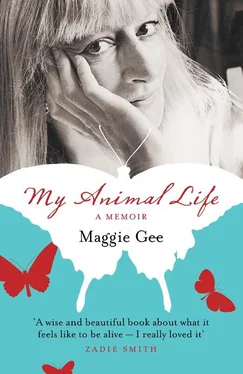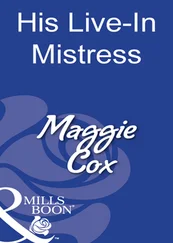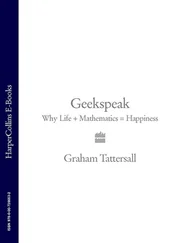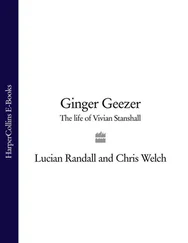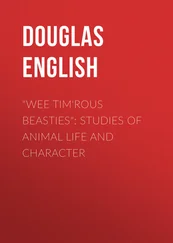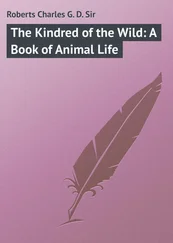Maggie Gee
My Animal Life
here today
gone tomorrow
I am alive at the time of writing this. And so are you. For nearly four billion years of life on earth, neither of us existed: we were a blank. For the next few billion years before the sun burns up the earth, our bodies will be bones under the ground, or ash, asleep.
But now, in this astonishing living moment, we are between two states of non-being, two endless nights. Unprepared, we are thrust on stage. The light is on, the eye open. Life! Brains and muscles, feathers and fur! From nothing, we are ourselves, moving and breathing, here. Suddenly, this is our chance; our luck, our animal luck.
(After my mother died, one of the sayings she liked, ‘This is not a dress rehearsal’, ran through and through my head. It would come to me at opportune moments: when about to have a tiff with my husband at a motorway service station, say. Mustn’t waste time being unhappy.)
As I sit in the window writing this, house-martins swoop like acrobats, sunlit then shadowed, up under the eaves above my head, dip and swoop, dip and swoop, white bellies, black wings that flare into brief transparency with the blaze of the sun behind them, elegant licks of black at quick heads and brief V-for-Victory tails. Go, martins! Enjoy your luck! They are scooping up insects in headlong flight, the day’s warm on their breasts, they have young to feed.
Today in the chapel at St Cuthman’s, the retreat where I have come to write, the priest said, ‘God did not make you for the dark of death, but to live.’
Four days before I came here, I was in St Mary’s Hospital, Paddington, having a gastroscopy for sudden unexplained stomach pains. They started at Christmas, five months ago, after a lifetime’s happy eating. I had waited and worried for all that time, unable to eat as I usually do, unable to drink my evening glass of wine, losing weight, five pounds, then six, then eight, oppressed as I lay awake at night by fear, for my mother and most of her siblings died of cancer.
I found I had symptoms of everything: cholecystitis, pancreatic cancer, liver cancer, bowel cancer. There is far too much on the net about cancer. Oh virtual world of death and terror! My gloom became great: I felt relief when I found any disease that gave a chance of living five years. Five years, I computed. My daughter would be twenty-five, and might even have a child or be married; I might have written two more books. Just give me five years, and I could bear it. But quite a few of the diseases which beckoned me offered a lot less than five years. The pain was there when I ran; when I exercised at all; when I lay in bed at night. When I forgot about it, it nudged me, suddenly, a strange line of pressure right across my stomach high under my rib-cage, with a knot of discomfort on the right-hand side. And then there were the noises, great skirling borborygms that made people look at me, surprised, in meetings. (I remembered my mother: that happened to her.)
Finally, after a night when I only slept between six and seven in the morning, the date of the much-dreaded gastroscopy arrived. The greater fear, of hearing I would die, for I had read that the doctor performing the gastroscopy told you the results straight away, was diverted into smaller but equally pressing ones: that I would be unable to swallow the fibre-optic tube with the camera on the end, that I would choke — very rare, but possible, the internet hissed.
Nick came with me to the hospital. I could feel his love, for which I was grateful, and his anxiety, for which I was sorry. Though he’d been a medic on an oil rig, as a young man, he hated anything medical, anything that reminded him of what he’d rather forget, that the insides of bodies are vulnerable. But here he stood, by the St Mary’s bed, smiling at me, holding my hand, asking me how to spell ‘sphygmomanometer’, and correcting me when I got it wrong. He had asked me, as a distraction and as part of the great game of marriage, the tiny, half-in-fun, deadly serious, up-and-down, never-ending battle for pre-eminence between two people. When we were first married — I was slightly older, and had published two books, as he had not — he discovered how sleepy and helpless I was in the morning, and would bring me breakfast, which was wonderful, and ask me questions about geography, at which I was hopeless. (‘The capital of Mongolia?’ ‘Odessa?’ ‘Wrong!’) Our war-games now were subtler, and the love between us twenty-five years deeper, but he could still spell sphygmomanometer, and I, at this moment, could not.
A nurse came to the bed and checked our details. ‘Maggie Gee for a colonoscopy?’ ‘Oh no please. I’m sure it’s a gastroscopy.’ ‘We’re doing colonoscopies this morning.’ ‘It’s a mistake,’ I asserted. She looked at me, unbelieving. ‘There is your name, see, on the colonoscopy list.’ I looked: there it was. ‘I don’t care, I’m not having one.’ She saw I meant business. ‘I’ll go and check.’ Thank God, she came back and said, ‘You are a gastroscopy but you’re with the colonoscopies for some reason.’
What was the reason? I wondered in a flash of panic. Because my case was particularly bad? Would they come in through my throat, and go out through my colon, having removed all that cancerous rubbish in between? (And yet, over the two weeks before I got my appointment, the pains had definitely been lessening. Another, equally powerful jab of thought: was it too late to leave the hospital?)
But now a white-clad male nurse had arrived. I was spared from speculation by concrete choices. Would I have a sedative, in which case I would probably forget everything about what had happened, or not? My call. Des, the velvet-voiced, melting-eyed Irish nurse, talked as he took my blood pressure, caressing into extinction most of the syllables of the ‘sphygmorrte r’ he was using (thus proving the point I had just made to my husband, that his precious ‘sphygmomanometer’ was a bad word that had made me misspell it), and seemed to hint that I should, or at any rate that he would. But half the patients did, half did not. ‘I’ll try without,’ I decided. Be with the bolder, tougher half.
Quite soon, knees up and semi-naked on a trolley in the procedure room, I thought, ‘Wrong decision’, but was too embarrassed to change it. They laid me down on my left side and put a blue plastic object with a hole in it between my teeth. I remembered that I often breathed through my mouth. Today, not an option. British shyness and good manners kept me lying there, gasping, be-dummied, immobile. Then I saw it, whipping steelily about in the air like a snake to my right and above me, the infinite length of the tube I was meant to swallow, at its end the tiny camera glowing with a fierce blue light, the doctor looming behind it like a fakir, green-capped, green-gowned, faceless. I closed my eyes and gave up, remembering what had finally allowed me to fly, after years of neurotic terror, someone saying, ‘You don’t have to fly the plane.’ Yes, I could not be in charge of this moment.
Seconds later, it was inside me. The doctor gave a would-be reassuring commentary, his tone merry and slightly manic: ‘This is the worst bit, we’re going over the tongue, we hmm — let’s see — YES! and down the throat, going down now, we’re in the stomach already! Now I’m going to blow some air into the stomach … Going further down, we’re in the duodenum …’
I tried to grunt in protest, to let him know he was risking my life with this five-star itinerary, and the nurse’s reassuring pressure hardened. ‘You’re doing very well, not long now.’ ‘Samples,’ said the cheery maniac, ‘scalpel’, and then something new whizzed and pinged down the tube. ‘We’re just taking some biopsies, coming back now, having a good look round inside the stomach, then we’ll be out.’ I lay there exhausted, eyes watering, weak as a baby. ‘Is it over?’
Читать дальше
